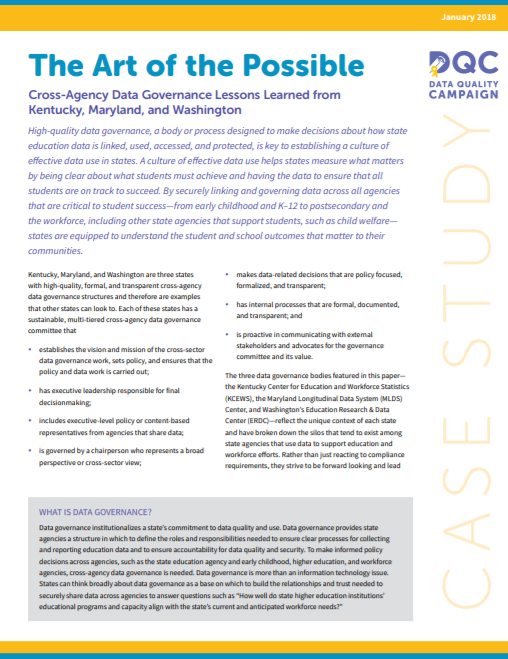Sharing data across agencies is critical to evaluating the effectiveness of high-quality Career Technical Education (CTE) programs of study. Data governance provides state agencies with a structure to define roles and responsibilities necessary for data collection and reporting and to ensure accountability for data and security.
This paper from the Data Quality Campaign examines high quality, transparent cross-agency data governance structures from Kentucky, Maryland and Washington and summarizes lessons learned from each state in the initial development of their data governance bodies. The paper examines the Kentucky Center for Education and Workforce Statistics (KCEWS), the Maryland Longitudinal Data System (MLDS), and Washington’s Education Research and Data Center (ERDC).
The paper outlines and provides state examples on how states can:
- Demonstrate that governance matters,
- Build trust and maintain relationships, and
- Embed data governance into a statewide culture of data use.
The paper concludes with insights from Kentucky, Maryland and Washington and how each state leveraged shared data governance to answer key policy questions such as measuring workforce outcomes for CTE students. The paper also provides an outline of their respective data governance structures.






